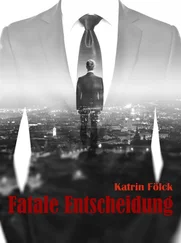Jean-Patrick Manchette - Fatale
Здесь есть возможность читать онлайн «Jean-Patrick Manchette - Fatale» весь текст электронной книги совершенно бесплатно (целиком полную версию без сокращений). В некоторых случаях можно слушать аудио, скачать через торрент в формате fb2 и присутствует краткое содержание. Год выпуска: 2011, ISBN: 2011, Издательство: New York Review Books, Жанр: Криминальный детектив, на английском языке. Описание произведения, (предисловие) а так же отзывы посетителей доступны на портале библиотеки ЛибКат.
- Название:Fatale
- Автор:
- Издательство:New York Review Books
- Жанр:
- Год:2011
- ISBN:978-1-59017-572-9
- Рейтинг книги:5 / 5. Голосов: 1
-
Избранное:Добавить в избранное
- Отзывы:
-
Ваша оценка:
- 100
- 1
- 2
- 3
- 4
- 5
Fatale: краткое содержание, описание и аннотация
Предлагаем к чтению аннотацию, описание, краткое содержание или предисловие (зависит от того, что написал сам автор книги «Fatale»). Если вы не нашли необходимую информацию о книге — напишите в комментариях, мы постараемся отыскать её.
Fatale — читать онлайн бесплатно полную книгу (весь текст) целиком
Ниже представлен текст книги, разбитый по страницам. Система сохранения места последней прочитанной страницы, позволяет с удобством читать онлайн бесплатно книгу «Fatale», без необходимости каждый раз заново искать на чём Вы остановились. Поставьте закладку, и сможете в любой момент перейти на страницу, на которой закончили чтение.
Интервал:
Закладка:
A delayed reaction to the death of his business partner and the others, and to the mad situation in which he found himself, sparked a sudden surge of emotion in him. He was bathed in sweat. He halted, panting. Mechanically, he rubbed his left arm, where a kind of muscle pain was affecting him. Then he set off once more.
Lorque reached the western end of the promontory. A fog was getting up, pierced by the silhouettes of the moving bridges and the machinery and superstructures needed for their operation. In the open area where the twin bridges met the market area, the roadway, slick with moisture, was deserted. Lorque crouched by a wall. To his left he heard a dull thud, which after a moment of thought he identified: someone had just leaped nimbly from the wharf and landed on the deck of a vessel moored parallel to the market hall. Moving with great caution, Lorque made his way along the quay in the direction of the sound, his neck rigid and his mouth half open. His own somewhat labored breathing hindered his ability to hear clearly. From the quay he discerned a figure prone on the deck of a little trawler and another leaning over the first. The leaning figure straightened up. Lorque recognized Commissioner Fellouque. The policeman had a revolver in his hand. Lorque walked along the quay towards him.
“It’s me,” he hissed. “Did you get her?”
He came abreast of the trawler and with difficulty jumped onto the deck himself. Fellouque seemed stricken. The prone body was DiBona’s.
“He’s had it,” said Fellouque. “He wandered over here to take a piss.”
“What an idiot,” said Lorque.
Fellouque asked Lorque how things were. Lorque told him that Aimée had killed all the others. The commissioner found it hard to accept this news. He gazed at DiBona’s corpse and shook his head.
“He suggested to me that we leave you to it,” he said reflectively. “Just before going off for a piss, he suggested that we let you sort it out with her, you and the others. In the meantime, he wanted us to go the baron’s and get the papers, the documents. I said that that was stupid, that she might well make her getaway over a bridge if we didn’t keep watch. Then he suggested that I should guard the bridges while he went to the baron’s for the documents. He said that the two of us would then be masters of Bléville. It was tempting.”
“I bet it was,” said Lorque.
Fellouque nodded.
“Well, it’s a moot point now.” There was a tinge of regret in the commissioner’s tone, and of weariness. “Do you really think she is still around here?” he asked, raising his head.
Lorque opened his mouth to reply. A hawser came looping down from the quay above and settled around the commissioner’s shoulders. Immediately the hawser tautened and the wire noose tightened about the policeman’s neck.
“Oh, no, no!” the man shouted in tones of distress and terror.
Somebody pulled vigorously on the hawser. The commissioner was dragged along, taking a few steps on the trawler’s deck before falling between the boat and the wharf. The tension in the cable arrested his descent halfway, just as his lower legs entered the water, which was streaked with fuel oil and full of trash. The man dropped his revolver and it was swallowed up by the water of the dock. He put both hands to his throat. A gurgling sound escaped from his open mouth. Lorque bent down in a frantic attempt to pull the policeman back up, grasping him under the armpits, but just at that moment the hawser unreeled slightly and Fellouque fell completely into the water. Still gurgling, he clung to the trawler’s hull and tried to clamber back on board. Lorque held a hand out to him. At the same time, the fat man with the brownish eyelids kept looking up in high alarm at the quay, at the place where the other end of the hawser disappeared in the luminous night. But he could see no one.
Grasping Lorque’s hand tightly, Fellouque almost succeeded in getting back onto the fishing boat. But at that instant an electric motor started up noisily somewhere on the quay. The commissioner grasped what was about to happen and screeched in horror. He was done for in any case, for the wire had cut into his neck, and Lorque was aghast to see spurting arterial blood drench the policeman’s throat. The power purchase on the quay was now operating. Its cable and the attached wire tensed. Commissioner Fellouque was hoisted aloft, his feet kicking at the air. When he was dangling three or four meters above the trawler, a hanged man with his throat slit, Fellouque’s feet stilled and Aimée cut the motor of the purchase. On the double, she left the quay and stationed herself in a room inside the fish market, a room with two exits, one to the quay and the other to the dirty roadway where the Mercedes was standing.
In the darkness the young woman was not visible. Had she been visible, she would not have been beautiful to behold; or perhaps she would have been beautiful to behold, depending on one’s taste. She was utterly disheveled. Gummy with sweat, her hair stuck to her skull and fell in damp strands over her brow and the nape of her neck, like the hair of ladies who make love relentlessly for hours at a time. Streaks of coagulated blood varnished her elbows and one side of her head and a whole forearm. Her long wool-knit coat was soiled in places by dust, fuel oil, and fish guts. Her silk blouse was bloodstained, its ribbing slightly torn on one side. Her nose was smudged with dirt. She heard Lorque’s voice.
“Let’s get it over with!” cried the fat man with the brownish eyelids. “I’m the only one left. Tell me where you are. I’m not going to spend all night looking for you.”
By leaning forward a little, Aimée was able, through the door that gave onto the quay, to see Lorque, who had come off the trawler back onto the peninsula and was shouting and wandering about on the concrete with his arms dangling.
“I don’t give a shit,” he cried. “If you don’t tell me where you are, I’m leaving. Perhaps you like playing hide-and-seek. I’ve had it with this. I’m fifty-nine years old. I’m too old to play around. What happens, happens. Screw it! I’m out of here. I’ll spend a few years in prison, big deal!”
He fell silent, waited for a moment, shrugged, and turned on his heel.
“Over here!” shouted Aimée.
Lorque froze. His head twisted this way and that. He was trying to tell where the voice had come from. He massaged his left arm ruefully. He took two or three steps, away from Aimée.
“You’re getting cold!” called Aimée.
Lorque stopped again. Turning around right away, he took three long but hesitant strides.
“Getting warmer!” cried Aimée. She chuckled delightedly.
Lorque headed straight for the doorway through which Aimée was watching his approach. He halted once more on the threshold.
“Now you’re hot!” said Aimée.
“I am unarmed,” said Lorque. “I want to talk to you. Listen here, I don’t deserve to die. What have I done except follow the natural impulses of the human race? And even that is saying a lot. We are choirboys compared with our ancestors. Does the sack of Cartagena ring any bells with you? Some of Bléville’s bold seafarers were there. I’m not talking about the first sack of Cartagena, that was Sir Francis Drake, but the second, when the French did the sacking. What I’ve done is nothing alongside the sack of Cartagena. Okay, so I worked a bit on the Atlantic Wall, I had to keep a low profile in South America for a while, then I came back and I’ve been giving employment to workers and making land productive. I’ve made my pile in the usual way. Just tell me one outrageous thing, one truly criminal thing, in what I have done, in what the baron had in his files, just name me one!”
Читать дальшеИнтервал:
Закладка:
Похожие книги на «Fatale»
Представляем Вашему вниманию похожие книги на «Fatale» списком для выбора. Мы отобрали схожую по названию и смыслу литературу в надежде предоставить читателям больше вариантов отыскать новые, интересные, ещё непрочитанные произведения.
Обсуждение, отзывы о книге «Fatale» и просто собственные мнения читателей. Оставьте ваши комментарии, напишите, что Вы думаете о произведении, его смысле или главных героях. Укажите что конкретно понравилось, а что нет, и почему Вы так считаете.












